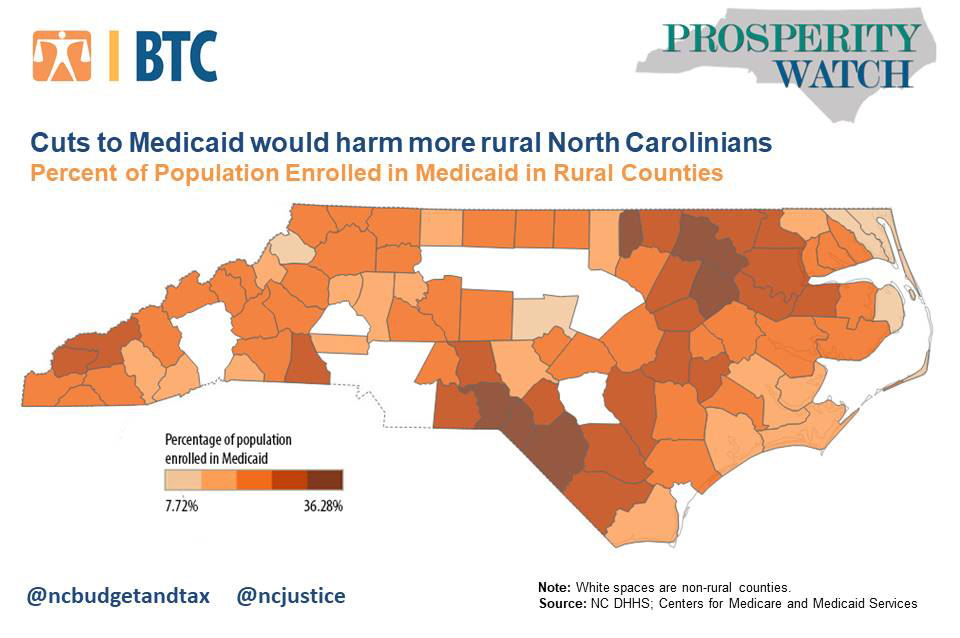Prosperity Watch (Issue 73, No. 4)
May 22, 2017
A new report from the Center on Budget and Policy Priorities last week highlighted the ways that the House-passed health bill – the American Health Care Act – would reduce access to health care in rural America, primarily because of the dismantling of Medicaid.
In the past year, Medicaid offered health coverage to 1.9 million poor seniors, children, parents, and people with disabilities – of which the majority (1 million) lived in the rural parts of North Carolina.
Specifically, North Carolina’s rural counties accounted for the following Medicaid beneficiaries: 60 percent of poor seniors, 53 percent of blind individuals, 58 percent of people with disabilities, 54 percent of pregnant women, and 51 percent of all infants and children.
The primary change to Medicaid is the implementation of a per capita cap that would shift costs to the state for health care coverage. Estimates suggest that North Carolina would have to absorb a $6.6 billion cost shift from the federal government in Medicaid if the House proposal for the program is included in the Senate version.
A review of the county by county data on enrollment in Medicaid shows that the distribution varies significantly from Watauga County, where 7.7 percent of the population is receiving health care through Medicaid, to Robeson County, where 36.3 percent of the population is. On average across rural counties, about 1 in 5 rural residents access health care with the help of Medicaid.
With the loss of health care coverage if eligibility is curtailed or cuts in services are made by North Carolina policymakers due to the cost shift from the federal government, there will be ripple effects through rural communities, including the worsening of health outcomes as people lose coverage. Moreover, as people lose coverage and cannot access care, it will harm health care providers and hospitals, many of which in rural areas are paid by Medicaid a significant share of the health care services that they provide.
 Justice Circle
Justice Circle 
